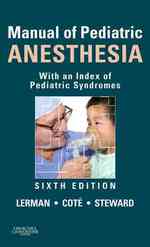- ホーム
- > 洋書
- > 英文書
- > Business / Economics
Full Description
This concise book uses narrative fiction to address how researchers can conduct qualitative research using both online and first-hand data and digital and face-to-face methods. The book is structured around four phases of the research process - accessing management field research, writing the literature review, collecting and analysing data and enacting qualitative research and finally the creative process of writing qualitative research. Theory and practice are merged through a situation-based case study within each chapter, with the methods and tools employed in each context explored through narrative fiction. The protagonists of each case have specific questions, emotions and ambiguities that qualitative researchers need to face, offering a unique approach to the practice of qualitative research and how it is used in real-life situations. Founded on the idea of enacting and not just doing qualitative research, this book offers toolkits that the researcher can use to operationalize research from start to finish. It will be of interest to postgraduate students conducting research-based projects in Business and Management, PhD researchers and academics looking for a fresh approach.
Contents
Introduction (Bruno Luiz Américo, Stewart Clegg & César Tureta) 1. Accessing Fieldwork (Bruno Luiz Américo, Letícia Dias Fantinel & Stewart Clegg) 2. Reviewing the Literature, Developing Theory? (Bruno Luiz Américo & Stewart Clegg) 3. Collecting and Analysing Data from Cartography of Controversies (César Tureta, Bruno Luiz Américo & Stewart Clegg) 4. Writing: Theorizing Aesthetically on Inclusion (Bruno Luiz Américo, Fagner Carniel & Stewart Clegg) Conclusion: Imagination and Creativity in Qualitative Research (César Tureta, Bruno Luiz Américo & Stewart Clegg)








